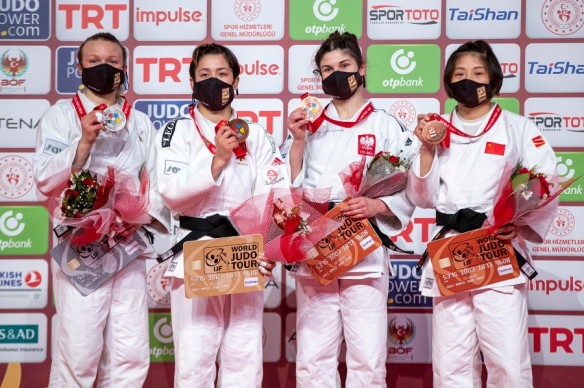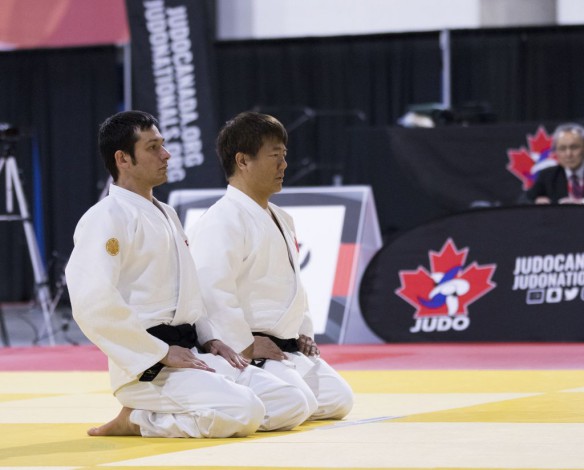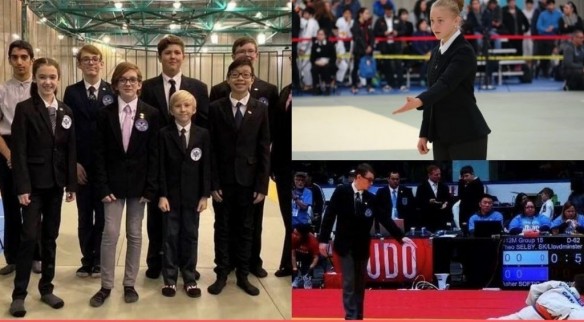Apr 2, 2021
Christa Deguchi Wins All-Canadian Final
After more than four minutes of overtime, Christa Deguchi beat Jessica Klimkait in what turned out to be an all-Canadian Under-57 kg final on Thursday at the Antalya Grand Slam in Turkey. Deguchi was awarded the gold medal, while Klimkait will go home with silver.
Because Klimkait and Deguchi hold first and third place respectively in the world rankings for their weight class, a tight battle was expected, and that is exactly what they delivered. After four minutes of regulation time, the judokas had received two penalties each, and it was a third penalty to Klimkait four minutes and 18 seconds into overtime that finally decided the match.
“It was a tough fight for both of us,” noted Deguchi. “The referee gave Jessica the penalty, but it could have been me, so I was lucky. I learned from last week’s mistakes.”
During the first half of the bout, Klimkait had some difficulty getting a good grip on her opponent, but she remained firmly on the offensive. However, she was unable to break through Deguchi’s tough defenses.
“I felt prepared and conditioned for this match, but it came down to me making an unnecessary attack at the end, which led to my last penalty,” Klimkait analyzed. “My intention was to deneutralize the situation and attack, to turn it in my favour. I believe Christa predicted this, and was able to defend against it, ultimately leading to the penalty.”
In her earlier rounds, Deguchi clinched two of her three victories by ippon, including her semi-final against Poland’s Julia Kowalczyk, bronze medallist at the 2019 World Championships, where Deguchi was crowned world champion. Last weekend, Deguchi earned third place at the Tbilisi Grand Slam in Georgia.
“Last week, I had done too much, so I got tired and made a big mistake in the semi-finals. This time, I was more focused and careful,” said the 25-year-old.
Klimkait, of Whitby, Ontario, won all her earlier bouts on Thursday by ippon, the last of which was against China’s Lu Tongjuan in the semi-final.
“I’m satisfied with some of the things I was able to accomplish in each fight. There are some things I can take away to work on at home, but at the end of the day, I wanted the result to be different.”
Quebec’s Julien Frascadore, the only male competing for Canada today, concluded his day with a 1-1 record. After defeating Cuba’s Orlando Polanco by ippon, he was eliminated in the same fashion in the next round by Gregg Varey of the UK.
On Friday, Catherine Beauchemin-Pinard (-63 kg), Isabelle Harris (-63 kg), Arthur Margelidon (-73 kg), Antoine Bouchard (-73 kg) and Étienne Briand (-81 kg) will hit the tatamis in Antalya.


















